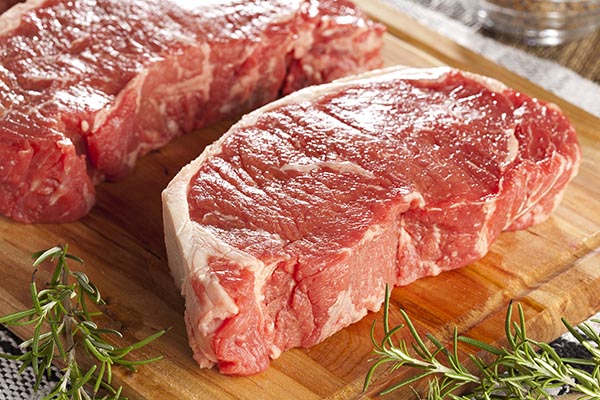Beef consumption in Russia is still dependent on imports
Over the past 5 years, the share of beef in a Russian meat plate has decreased from 20% to 18% at the end of 2021. According to the data of the National Rating Agency (NRA), the average consumption has decreased by 1 kg and amounts to 9 kg per capita, Izvestiya newspaper reports. And beef remains one of the import-dependent categories.

The National Pig Breeders' Union estimates that the share of beef on dinner tables will drop by another 1.9% (the results have not yet been summed up).
While the volume of pork and poultry will increase by 5.9% and 2% respectively. In 2021, the consumption of these types of meat averaged 15 kg and 25 kg, respectively.
Demand for beef in large retail chains has generally been declining over the past 5 years. At the same time, sales of pork and turkey are growing, the Association of Retail Trade Companies (AKORT) confirmed to Izvestia. In recent months, retailers have also recorded a decrease in interest in premium types, such as marbled meat and steaks. The main reason for this trend is rising prices.
"A moderately negative trend will continue in 2022 and 2023, people will continue to buy less beef. With an increase in pork and chicken consumption, beef consumption may drop to 8 kg per capita," the NRA said.
The trend is driven by the high price of this meat compared to other protein sources. According to Rosstat, as of January 2023, the retail price of boneless beef was 662 rubles per 1 kg, which is 59% higher than the cost of pork and 2.8 times more expensive than poultry meat. And the price gap between beef and other meats will continue to widen. NRA experts expect a rise in the price of beef in 2023 by 7%. This may happen against the backdrop of an increase in its value in the world, as well as an increase in the cost of its production.
The NRA believes that the extension of the quota for duty-free import of beef will help to contain the rise in prices this year.
As noted in the Ministry of Agriculture, at the end of January, the Eurasian Economic Commission set a quota for beef at the level of 100 thousand tons for 2023. Such a volume can be imported with a customs duty of zero. This measure will provide processors with the necessary number of raw materials.
"At the same time, the Ministry of Agriculture is actively stimulating the development of domestic beef production. A wide range of state support measures are provided for this. For example, a new subsidy to produce cattle for slaughter has been in effect since 2023," the Ministry of Agriculture said.
Source: meatinfo